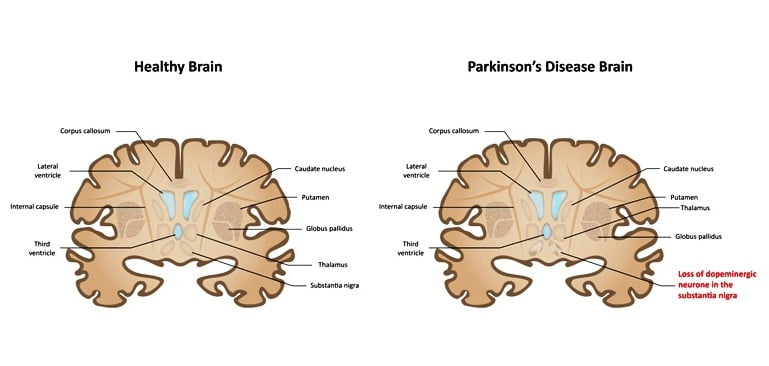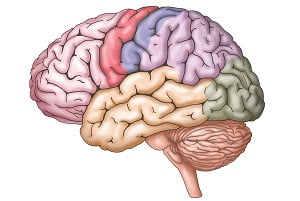Parkinson’s disease facts
- It is a neuro-degenerative problem which leads to progressive decline of motor function due to loss of dopamine-producing brain cells.
- Generally people with Parkinson’s disease are diagnosed in old age when they are 60 or older, but sometimes early-onset of the disease may also occur.
- Most people with Parkinson’s disease can lead long lives for many years after the diagnosis.
- In addition to movement-related symptoms (motor symptoms), Parkinson’s disease may cause symptoms that are unrelated to movement (non-motor symptoms).
- Scientists are trying to find ways to identify biomarkers for the disease that can lead to earlier diagnosis and better treatment options to slow down the progression of the disease.
- Currently, all treatment therapies that are applied for the disease focus on improving the symptoms without slowing or stopping the disease progression.
What is Parkinson’s disease (Parkinson’s syndrome)?
Parkinson’s disease (PD) or sometimes called Parkinson syndrome is a neuro-degenerative disorder that affects mainly dopamine-producing (“dopaminergic”) neurons in a specific region of the brain called substantia nigra.
Symptoms and causes
Symptoms of the disease generally develop gradually over years. The progression of symptoms may vary from one person to another due to the diversity of the disease. People with PD may experience various symptoms such as motor problems, balance problems, tremors, memory problems, etc. Read more about symptoms of Parkinson’s disease.
A person with Parkinson’s disease can experience a wide range of physical and psychological symptoms.
Parkinson’s disease is caused by a loss of nerve cells in a specific part of the brain called the substantia nigra. This causes a reduction in a chemical called dopamine in the brain.
Who’s affected with the disease?
About 1 in 500 people are affected by Parkinson’s disease, which means there are an estimated 127,000 people in the UK with the condition.
Generally people living with Parkinson’s disease start developing initial symptoms when they’re above 50 years in age. But some people with the condition experience symptoms when they’re younger such as under 40. But this is not very common.
Men are more likely to get Parkinson’s disease than women as observed in statistics.
The first step to living a good quality of life with Parkinson’s disease is to understand the disease and its development. It is very much possible to live a good quality of life with Parkinson’s. You must work with your doctor and follow the recommended treatment to successfully treat the symptoms by using medications.
People with the disease need this medication because they have low levels of dopamine or the dopamine is entirely missing in the brain, primarily due to impairment of neurons in the substantia nigra.
Recent medical advances in treatment have improved the chances of living a near great quality of life. Surgery and deep brain stimulation can also help severe cases. With deep brain stimulation, electrodes are surgically placed inside the brain. They send electrical pulses to stimulate the parts of the brain that control motor skills.







